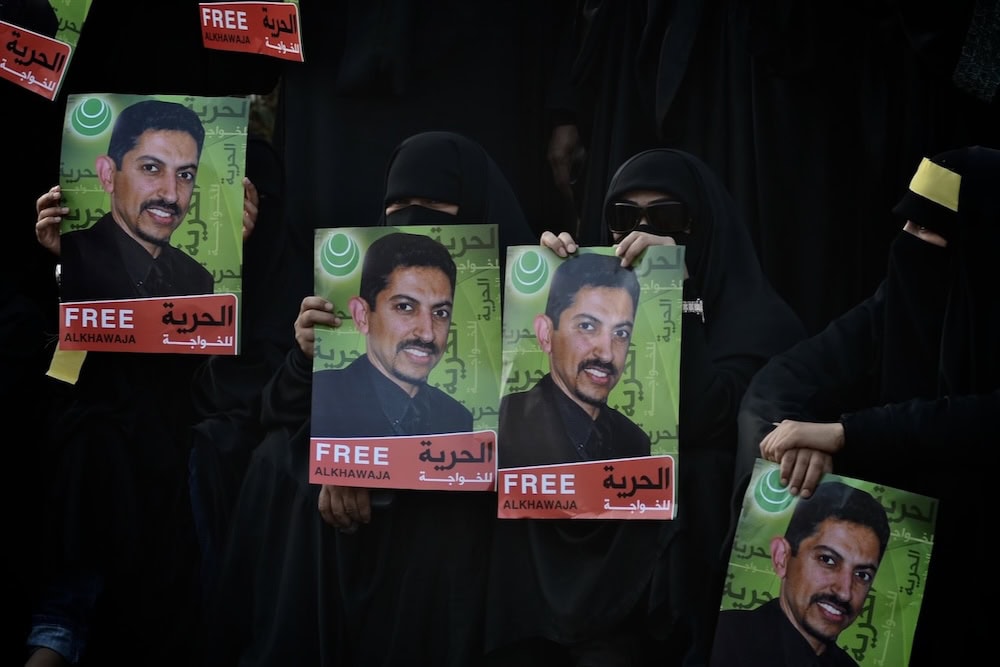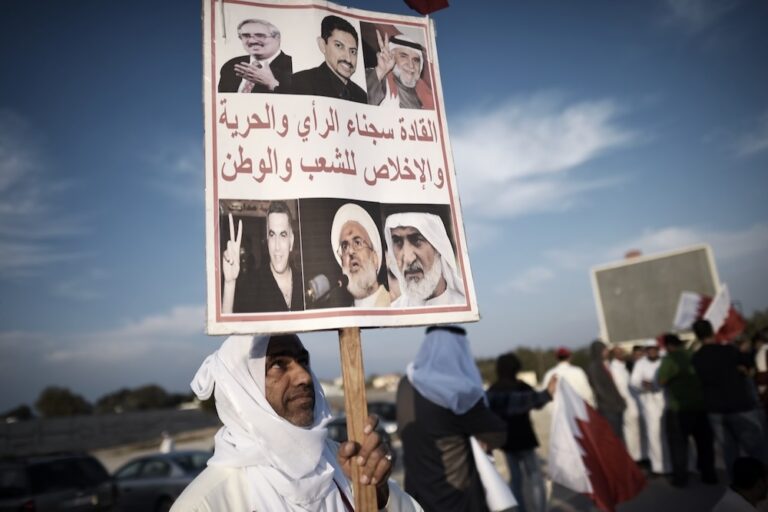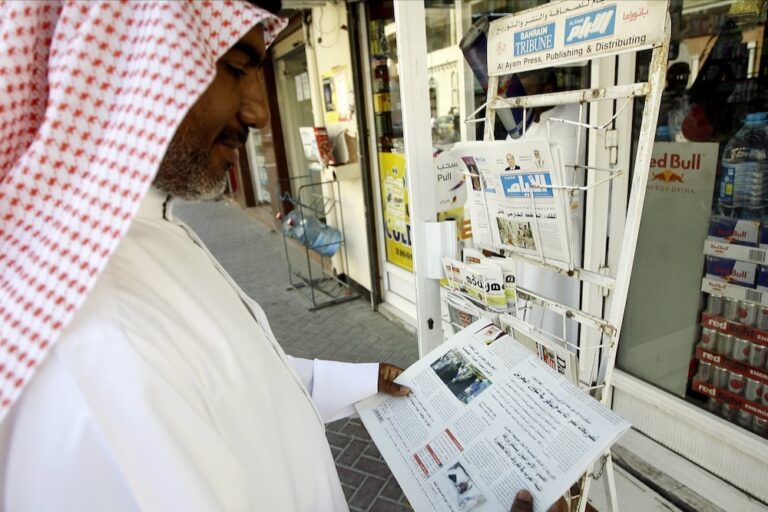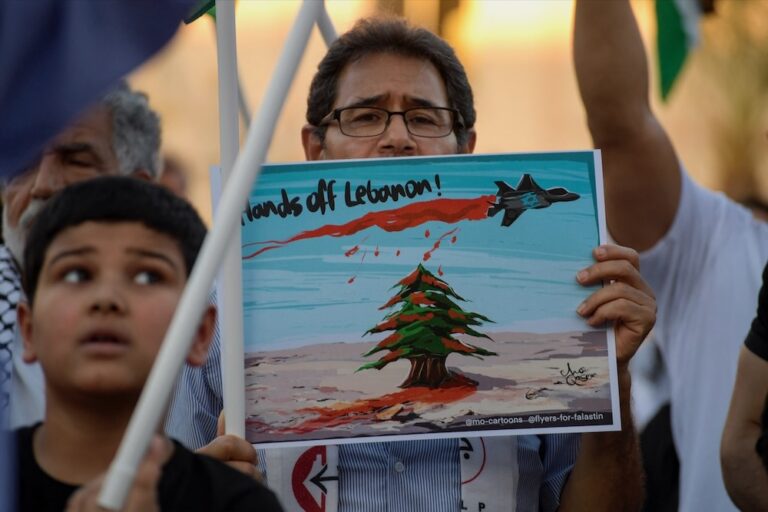The failure to release significant human rights defenders highlights the ongoing risks to civil society and the need for comprehensive legal reforms.
This statement was originally published on gc4hr.org on 8 October 2024.
The Gulf Centre for Human Rights (GCHR) followed with enthusiasm several recent pardons by the King of Bahrain, Hamad Bin Isa Al Khalifa, which led to the release of over 1000 prisoners, but is disappointed that more human rights defenders still have not been released.
In April 2024, the King pardoned 1,584 prisoners, including 650 political prisoners, to mark the Eid Al-Fitr and 25 years since he took power. Among those released was human rights defender Naji Fateel on 08 April 2024. In June 2024, the King pardoned 545 prisoners.
On 04 September 2024, the King pardoned another 457 prisoners, including 150 political prisoners, coinciding with the Eid Al-Adha holiday. Bahraini official news agency stated that the pardon reportedly “reflected the King’s benevolent intention to strengthen the unity and protection of the Bahraini society.” Although human rights violations committed by authorities are putting the strength and the unity of the whole society at risk.
The releases this year mark the largest number of prisoners pardoned since 2020, when Bahrain released 1,486 prisoners, including 901 who received a Royal Pardon during COVID-19 for humanitarian reasons.
However, a report published by the Bahrain Institute for Rights in Democracy (BIRD) noted that the pardon in June largely excluded political prisoners and human rights defenders. The official list in June included only 545 prisoners, much less than the previous pardon, the majority of whom would be deported. Of those 545 prisoners, only eight political prisoners were pardoned or less than 1.5%. Among them, there were four political prisoners who were released from Dry Dock Prison who were under the age of 21 years, including Maythem Mahmoud, Bassem Al-Helal, Mohammed Yousif Al-Tamer, and Mohammed Munir Mushaima.
There were also three political prisoners who were serving alternative sentences, including Hisham Al-Sabbagh, Hussein Al-Hanan and Khodair Radhi Khodair. Additionally, one political prisoner was released due to a medical condition.
The list of pardoned prisoners in June and September 2024 did not include any prominent human rights defenders, such as Abdulhadi Al-Khawaja, a co-founder of GCHR, who is also suffering from serious medical conditions, or Dr. Abduljalil Al-Singace, who has been on a liquids-only hunger strike since 08 July 2021, and is suffering from serious medical concerns.
Though the Ministry of Interior has announced that there will be more prisoners to be released, certain reports are concerning. For instance, Ayman Salman, a Saudi resident of Bahrain is due to be deported back to Saudi Arabia despite the imminent risk for his safety and the fact that he is the only relative of his aging Bahraini mother who resides in Bahrain. Salman was arrested on charges of participating in an assembly, but the court has vindicated him. Saudi authorities are notorious for arresting anyone who has participated in protests and in some cases, sentencing protesters to death. Reports also mention that about 300 pardoned prisoners remain in prison.
In a joint letter by 29 NGOs including GCHR to UN member states ahead of the 79th session of the UN General Assembly, the groups stated, “we urge you to raise human rights priorities in Bahrain, including concerns about the continued arbitrary detention of human rights defenders, scholars, bloggers, and opposition leaders in Bahrain, the use of the death penalty, and the revocation of citizenship.” The letter notes that the high-level general debate on 24-28 September 2024, pertinently themed “Leaving no one behind: acting together for the advancement of peace, sustainable development and human dignity for present and future generations,” was “a critical opportunity to push for resolution on these long-standing human rights abuses.”
While the pardons in April, June and September that 2024 led to the release of over 1000 prisoners, including 150 political prisoners in April, are notable, resulting in the lowest number of individuals wrongfully imprisoned in Bahrain since 2011, the letter notes that “they largely excluded prominent human rights defenders and leading opposition activists who played significant roles in the 2011 pro-democracy protests.” This includes Al-Khawaja and Dr. Al-Singace, as well as opposition figures Hassan Mushaima and Sheikh Ali Salman.
There have been additional complaints about the alternative sentencing program and that those who were released are living in an open prison. Released prisoners, who spent years in prions, are also finding difficulties accessing state resources of housing and jobs, despite promises by the authorities to support their reintegration into society. The Royal Pardons represent a positive step in the right direction and a departure from the authorities’ previous pursuits of activists after 2011 mass protests, in which hundreds of activists and protestors were imprisoned, deported, and stripped of their nationality. However, much work needs to be done to ensure effective implementation and support for those released or those who remain imprisoned.
Recommendations
GCHR calls on the Bahraini authorities to:
- Facilitate the implementation of the Royal Pardons in ways that would allow for a timely release and meaningful societal reintegration of freed prisoners.
- Extend the Royal Pardons to include all remaining political prisoners and human rights defenders, particularly those who are suffering from ill-health and mistreatment.
- Reform the legal framework in Bahrain to allow the public to practice their political and civil rights, including the rights to freedom of expression, association and assembly, without any fear of retribution.



